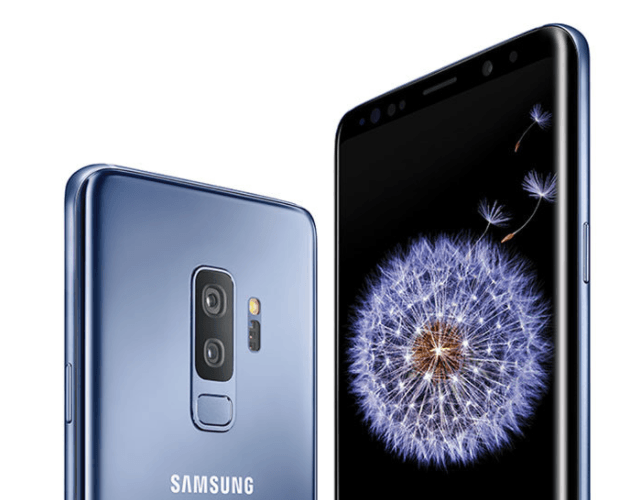Consumers expect the newer phones, especially in the premium segment, to be more powerful than their slightly older rivals. The iPhone X has been around for more than four months, and the Galaxy S9 has just gone on pre-orders. Samsung fans were hoping that the Galaxy S9 and S9 Plus would be more powerful than Apple’s 10th-anniversary iPhone. But benchmark results show that the iPhone X is still the king when it comes to performance.
Camera testing firm DxOMark has found that the Galaxy S9 Plus has the world’s best smartphone camera. But Samsung’s latest flagship isn’t the best when it comes to performance. The Galaxy S9 and S9 Plus are powered by the Exynos 9810 or Snapdragon 845 chips depending on the market. Benchmark tests have shown that the Exynos 9810 is more powerful than the Snapdragon 845, but it lags far behind Apple’s A11 Bionic chipset that powers the iPhone X.
Folks at AnandTech tested a demo version of Galaxy S9 Plus on different benchmark sites. On Geekbench 4 test, the Exynos version of the device delivered single-core integer and floating point scores of 3,734 and 3,440. The Snapdragon 845 scored merely 2,718 and 2,041 points, respectively. By comparison, the iPhone X running the A11 Bionic chipset scored 4,630 and 3,958 points in integer and floating point, respectively.
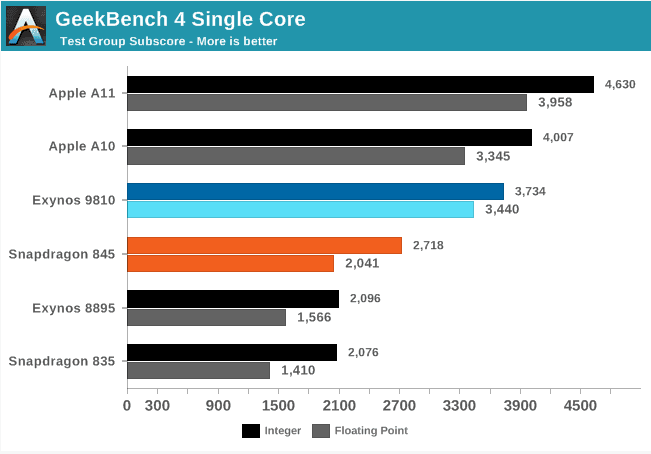
Even the A10 processor that powers the iPhone 7 was able to beat both the Exynos and Snapdragon variants of the Galaxy S9. The A10 chip scored 4,007 and 3,345 points, respectively, in the same benchmark test.
In the WebXPRT test that measures the JavaScript and HTML5-based tests, the Galaxy S9 Plus running Exynos 9810 could manage only 178 points. Even Qualcomm’s Snapdragon 845 chip scored a healthy 291 points. But both of them lagged behind the iPhone X’s 352 points and the iPhone 8’s 349 points.
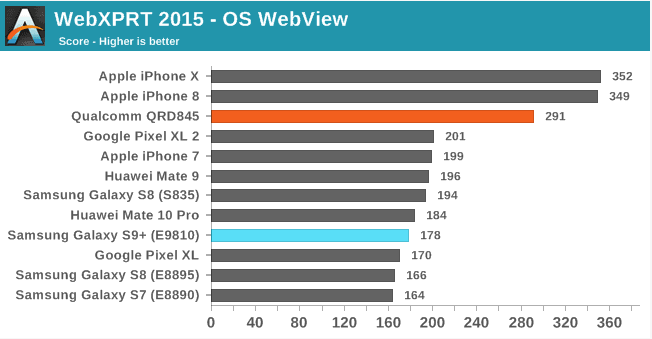
The performance gap was even bigger in the Speedometer 2.0 test. The Galaxy S9 Plus could only manage a score of 26.70. The Snapdragon 845 scored 43.10 points. By comparison, the iPhone 8 scored 88.90, the iPhone X received a score of 87.20, and the iPhone 7 managed 55.20 points. The Snapdragon variant also outperformed its Exynos sibling in the PCMark Work 2.0 benchmark. So, AnandTech concluded that there was something seriously wrong with the Exynos 9810 Galaxy S9 Plus that they tested.
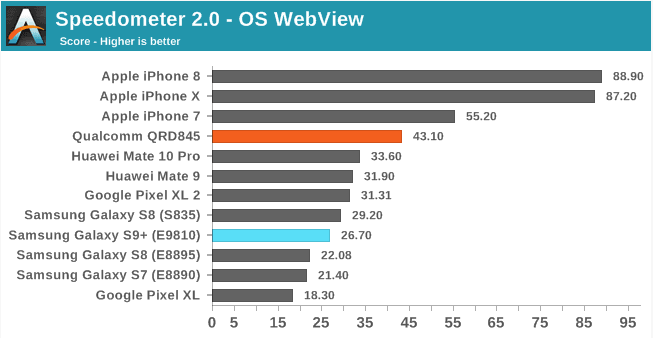
Andrei Frumusanu of AnandTech noted that the demo handset’s poor scores on Speedometer 2.0 and PCMark Work 2.0 compared to the Snapdragon 845 suggest that something was “very very wrong” with the Exynos 9810-powered demo unit. Even if the Exynos 9810 had shown the same performance as Snapdragon 845, it would still lag behind the iPhone X in performance.
A Samsung spokespesron confirmed to AnandTech that the demo units at the Mobile World Congress (MWC) were running a special firmware, which might not have been optimized.
Coming to graphics tests, the Mali G72MP18 GPU found in the Exynos-powered Galaxy S9 Plus scored only 45.70 peak frames per second on GFXBench Manhattan 3.1 benchmark. The Snapdragon 845 scored a handsome 60.94 while the iPhone X sat on the top with 64.19 points. The Galaxy S9 Plus scored 143.4 frames per second compared to the iPhone X’s 176.6 in the GFXBench T-Rex 2.7 test.
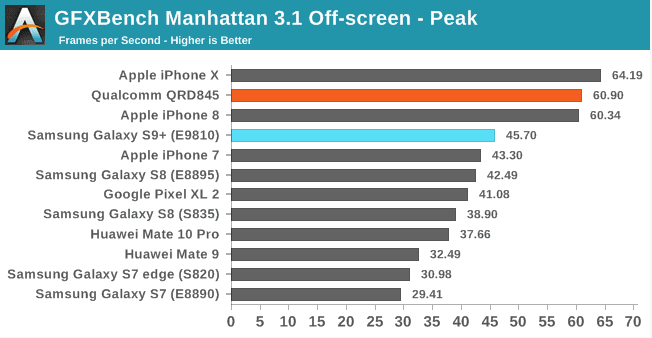
Since the demo unit was running a special firmware, we should take these benchmark scores with a pinch of salt. The consumer version of Samsung’s flagship smartphones might deliver different results.
The Galaxy S9 and S9 Plus feature the same 5.8-inch and 6.2-inch Super AMOLED Infinity displays as their respective predecessors. According to DisplayMate, the Galaxy S9 and S9 Plus have the world’s best smartphone display. The new flagship has received the “highest ever A+ grade.” DisplayMate noted that the Galaxy S9’s color accuracy was “visually indistinguishable from perfect.” The S9’s screen is also 15% brighter than the Galaxy S8.
The smaller Galaxy S9 packs 4GB RAM while its bigger sibling comes with 6GB RAM. Both the devices are available in 64GB, 128GB, and 256GB storage options. It also has a microSD card slot that supports up to 400GB of external memory. The S9 includes a 3000mAh battery and the S9 Plus comes with a 3500mAh battery pack. Other features include a rear-mounted fingerprint scanner, dual stereo speakers tuned by AKG, wireless charging, and a 3.5mm headphone jack.
The new phones have an Intelligent Scan feature for enhanced security. Though it isn’t as secure as Apple’s Face ID, Intelligent Scan combines data from the iris scanner and facial recognition to unlock the device. The Galaxy S9 has a 12-megapixel primary camera with a variable aperture of f/1.5 and f/2.4. The S9 Plus features two 12-megapixel sensors on the back panel. Both the models have an 8-megapixel front camera for selfies.
Both the Galaxy S9 and S9 Plus are now available for pre-order. You can pre-order them directly from Samsung’s website. The S9 has a starting price of $720 while its bigger sibling would set you back by $840.

